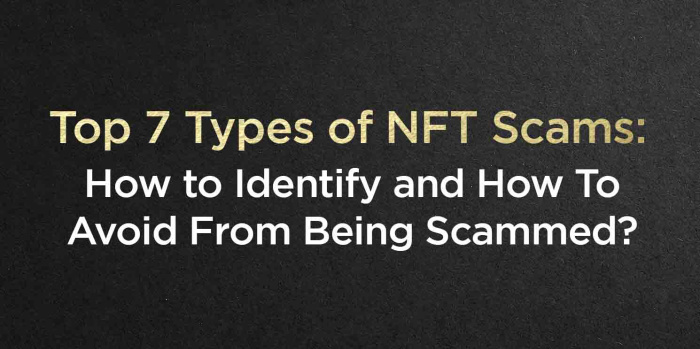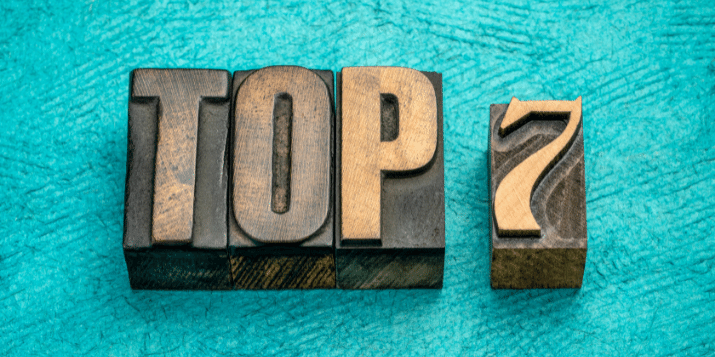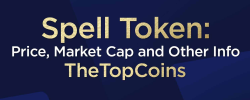
Top 7 Types of NFT Scams: How to Identify and How To Avoid From Being Scammed?
Introduction
Non-fungible tokens, or NFTs, are the latest trend. People from all over the world are spending millions of dollars (in cryptocurrency) on NFT art and collectibles. The eruption of NFTs onto the world scene and the media would not have surprised a crypto geek. These tokens have been around for a while.
Let's take a look at some of the most popular prevalent NFT scams in this article, how to prevent them, and some valuable safety advice. The scams listed below are all from community members' practical experiences. There are constantly new ones appearing, so keep careful and attentive at all times.
What is a Non-Fungible Token (NFT)?
The term "Non-Fungible Token" (NFT) refers to a token that is not fungible. Non Fungible Token is a digital asset that connects ownership to one-of-a-kind physical or digital things such as artwork, real estate, music, and films.
NFTs are considered modern-day collectibles. They're bought and sold online, and they serve as digital proof of ownership for any given item. NFTs are safely held on a blockchain, the same technology that underpins cryptocurrencies, ensuring that each asset is unique. It will be secure against counterfeiting thanks to the backend technology.
NFT prices have skyrocketed as a result of the spike in cryptocurrencies such as Bitcoin price and Ethereum price.
Top 7 Types of NFT Scam
NFTs, or non-fungible tokens, have grown in popularity in recent years, with NFT artworks now fetching millions of dollars. But, when an industry grows to this significant, it's only natural for con artists to try to take advantage of unsuspecting consumers.
The top seven forms of NFT frauds, as well as how to avoid them, are listed below. Let's look into it.

Discord Scam
You'll get more false invites as your Discord network grows. Discord DMs may be extremely troublesome, especially if the impersonator is a brand, artist, or NFT influencer. Never click on links, no matter how legitimate they appear, or on DMs from "friends" requesting money, or on "announcements" from NFT initiatives (always check the group and ask in the group first). Check their handle first if you receive an unexpected message from someone you know.
Fake Twitter Profile
Most NFT influencers and companies will have someone imitate them at some time. Be extremely cautious since the fake arts and fake profile will exactly mirror the actual one. If you aren't paying attention, you won't notice that the only difference in the bio is that it reads DLCBlogger instead of DCLBlogger.
At some point, most NFT influencers and firms will be imitated. Be extra cautious, as the false profile will be an exact replica of the real one. If you're not paying carefully, you'll miss the fact that the only alteration in the bio is that it now reads DLCBlogger rather than DCLBlogger.
These bogus social media profiles can also offer bogus giveaways, posing a significant risk to unsuspecting consumers. We'll get into it a little later.
Fake NFT Marketplace
Fake markets with almost identical URLs This is a typical NFT fraud that has been and will continue to exist in perpetuity. It may happen via Discord, emails, Twitter, or any other method of NFT or crypto communication.
Suspicious-looking emails from large corporations such as OpenSea are not uncommon. These emails will seem eerily identical to the genuine thing, with a few tiny differences in the links. Before clicking on anything requesting personal information, such as a seed phrase or password, carefully examine the links and messages.
False Bidding
False bids are a terrible fraud that some people have fallen victim to in recent months. So you put your NFT up for sale, and people bid on it, but here's the catch: they bid in USDC. You end up selling the gorgeous Bored Ape for 17 USDC instead of 17 ETH (true story). Ouch. That stings! To ensure that you get caught in their trap, some scammers will even add WETH logo as their DP.
A more recent NFT scam involves persons listing and relisting after immediate delisting by doing a slight moving of the decimal. See the entire explanation and example below.
NFT Forgeries
Unverified Bansky-styled artworks were auctioned for about $1 million in ETH earlier this year. This leads us to the issue of forgeries in the NFT realm. If you're planning to buy pricey and sought-after CryptoArt, it's a good idea to perform some preliminary study (especially if the artwork is going for less than it should be).
To begin, always confirm that the NFT's contract address is correct. Please do some research on the portfolio of the seller, what other NFTs they have sold or the authenticity of the NFT. If it is a 1/1 edition, there should be just one for sale, and it should preferably have been certified with a blue check if it is a genuine article.
Giveaway Scams
We covered it briefly before while talking about NFT frauds on social media. Fake NFT social media profiles and Discord servers can conduct bogus giveaways, leading consumers to believe they've won large.
In this fraud, a phony NFT account would message individuals, generally on Twitter or Discord, claiming that they have won an NFT. This bogus NFT account will then send the victim to a bogus NFT website, where they will be asked to connect their crypto wallet and input their seed phrase.
In essence, if a fraudster obtains this phrase, it's game over. This phrase, or password, will provide them with quick access to your wallet, allowing them to drain your cash and leaving you with nothing. You won't be able to change the phrase before the scammer logs in.
Investor Scam
After investors put large sums of money into the business, the mysterious creator of an emergent NFT project named 'Evolved Apes' jumped ship with $2.7 million, or 798 ether.
People who have been informed that they have won Evolved Apes never received the rewards. In the end, it was all a big marketing ploy to gather money for a rug-pull.
While most individuals choose to acquire NFTs rather than directly invest in new projects, it's crucial to keep this type of fraud in mind when investing in anything in the crypto market. Ponzi schemes and rug-pulls are common in the sector, and it's important to educate oneself on the hazards of investing.
How to Identify Them?
The more NFTs that are published and exchanged, the easier it is to identify behavioural and financial trends utilizing data, community comments, and experience.
Here are the most important factors to examine when reviewing an NFT project to see if the NFTs are real.
- The brand recognition of an NFT project is arguably the most significant criterion to consider when evaluating its validity. Furthermore, if you can discover frequent media coverage and active debates about the NFT brand from credible crypto community members, you are most certainly looking at a project with worth.
- The most renowned NFT collections usually feature active collectors and fan groups.
- If a large business, celebrity, athlete, or renowned artist has formally launched or sanctioned an NFT collection, you are most certainly dealing with a true NFT initiative.
- Before you buy any NFT, investigate the blockchain on which it is based and determine whether you believe the chain will be there in 50 years or more.
How to be Safe From NFT Scams

Don't worry, and there are also some preventive measures that can be taken. Let's begin with the most important:
- NEVER disclose your seed phrase or password until you are certain and have triple-checked what you have clicked on.
- Always cross-check the new messages from "friends".
- Stay away from the trap of lucrative offers. If you're tempted to click, first do a thorough investigation into who is providing the links. Particularly on Discord.
- Put your most important possessions in a "cold wallet". These types of wallets are very hard to access due to their multi-method security measures.
- Use a hardware wallet like the Ledger or the Trezor. A hardware wallet is a high-security bitcoin wallet that allows you to keep your funds safe and secure. When you need to handle your finances, just link it to your computer.
- For all of your wallets and accounts, use a password manager like LastPass (or another one).
Final Thoughts
It's a little frightening to consider how many various scams you may fall for these days. Every other week, cybercriminals get more inventive, inventing new techniques to deceive people.
However, you need to remain cautious and updated on the recent market trends and scams. If you know how to identify them, you will undoubtedly keep yourself safe in the amazing world of NFTs.







Leave a Reply
33 comments
Add comment ×